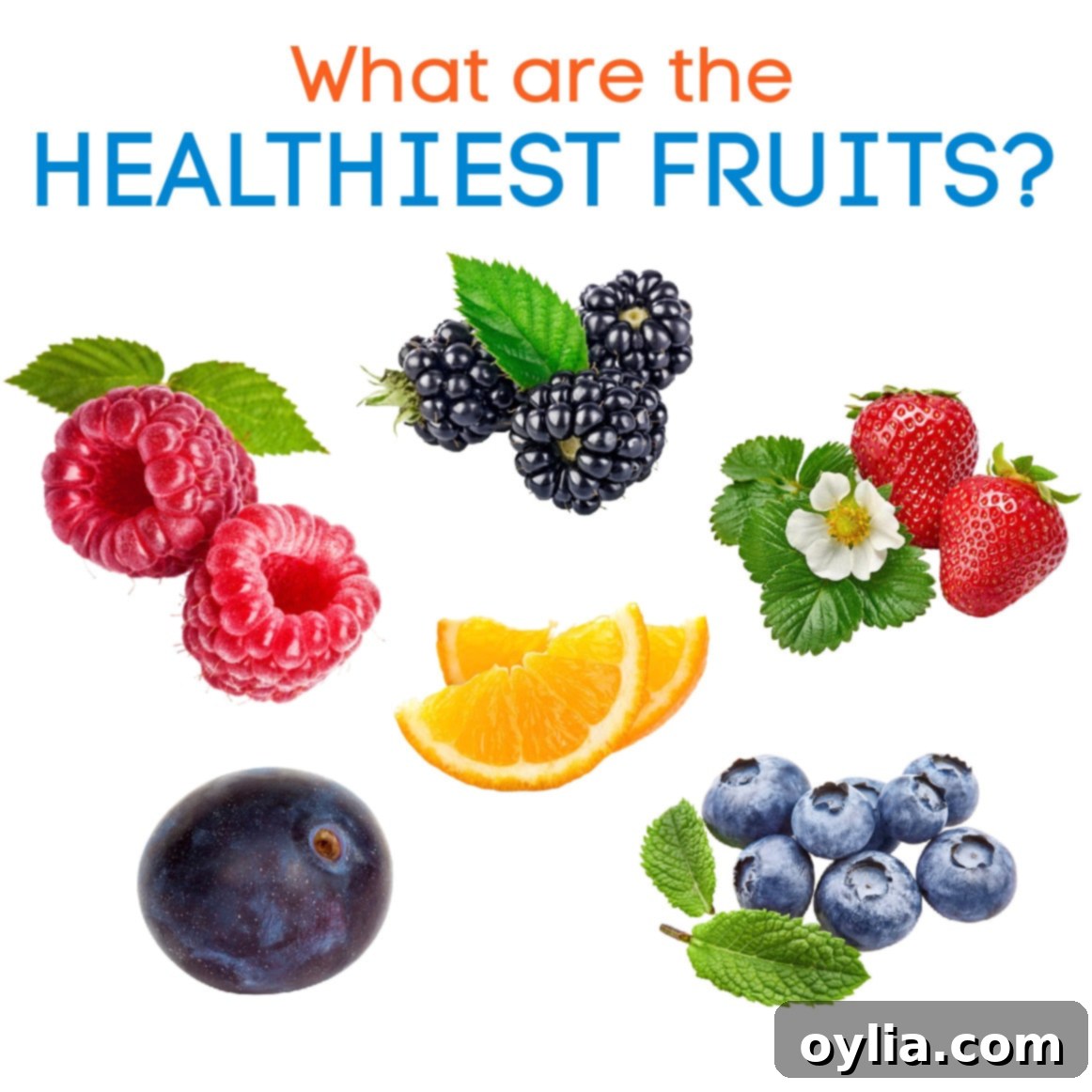The Healthiest Fruits for a Balanced Diet: Low Carb Options & Essential Nutrients
Fruits are nature’s vibrant gifts, bursting with an incredible array of vitamins, essential minerals, and potent antioxidants, making them indispensable components of any healthy diet. Each fruit offers a unique profile of benefits that supports overall well-being and contributes to a balanced lifestyle. However, with thousands of different types of fruits available globally, it can be challenging to determine which ones are truly the healthiest. Furthermore, for individuals managing their sugar intake or adhering to specific dietary plans like low-carb or ketogenic lifestyles, understanding the carbohydrate content of fruits is paramount. Where do low-carb fruits fit into this nutritional landscape, and which ones should you prioritize?
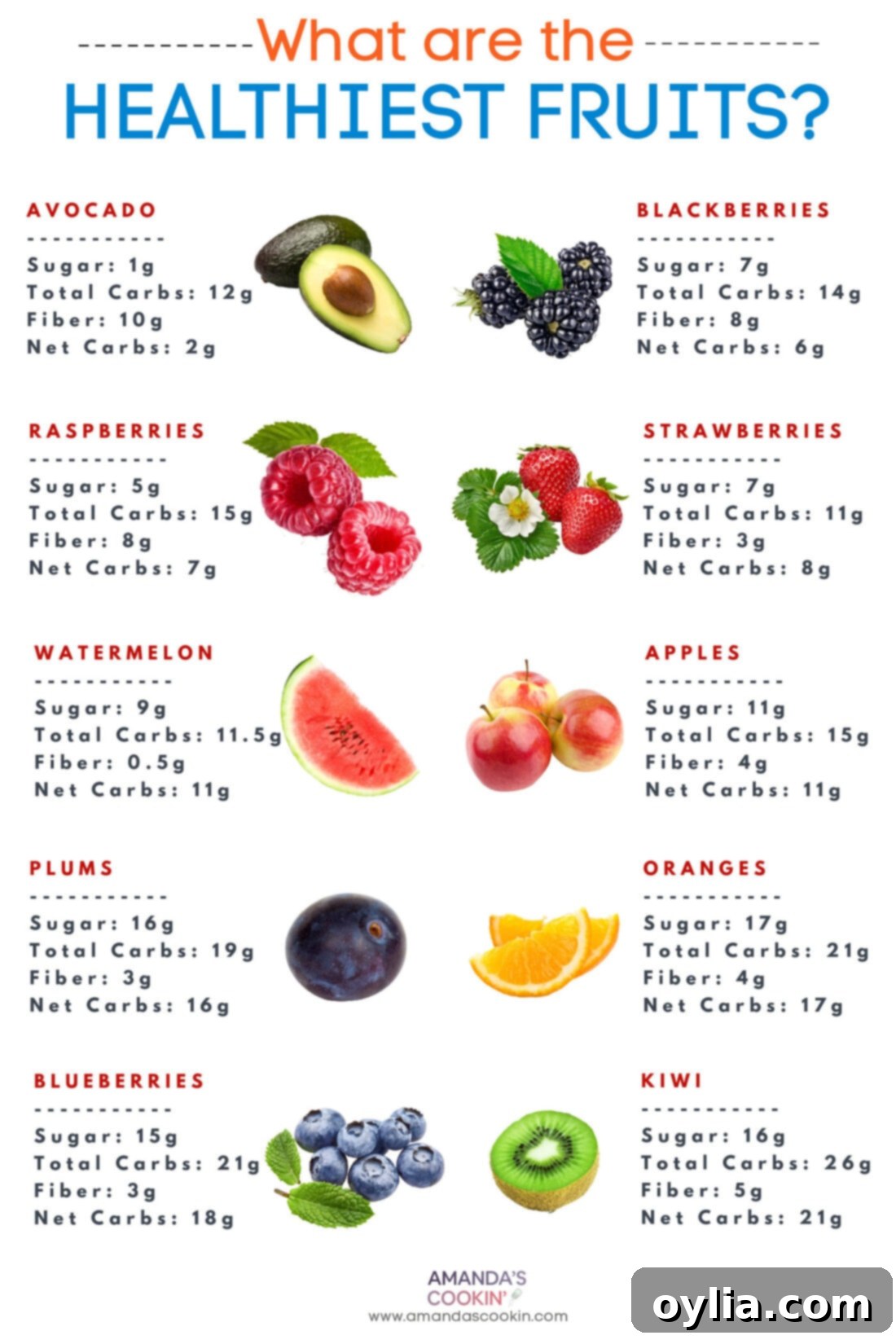
This comprehensive guide will thoroughly break down the healthiest fruits to integrate into your diet, specifically focusing on their sugar and net carbohydrate content. We’ll explore exceptional low-carb options, perfect for those monitoring blood sugar or following ketogenic principles. Additionally, we’ll identify some higher-sugar fruits that, while incredibly nutritious, are best enjoyed in moderation. Get your notepad ready, because this detailed overview will help you make informed choices and easily add these beneficial fruits to your next shopping list!
Understanding Carbohydrates: Total Carbs vs. Net Carbs
When you’re trying to make healthy food choices, especially concerning fruits, you often hear terms like “total carbs” and “net carbs.” But what do they really mean, and which one should you pay attention to? Understanding this distinction is crucial for anyone managing their weight, monitoring blood sugar levels, or following a low-carb diet.
Total Carbohydrates refer to the entire amount of carbohydrates present in a food item. This includes sugars, starches, and dietary fiber. While all these are types of carbohydrates, they interact with your body in different ways.
Dietary Fiber is a unique type of carbohydrate that your body cannot fully digest. Instead of being broken down into glucose and absorbed into the bloodstream, fiber passes through your digestive system mostly intact. This indigestible nature makes fiber incredibly beneficial: it aids in digestion, promotes satiety (feeling full), helps regulate blood sugar by slowing down the absorption of other carbohydrates, and supports a healthy gut microbiome. Since fiber does not get converted into glucose and thus doesn’t raise blood sugar, it’s often excluded when counting carbohydrates for specific dietary goals.
This brings us to Net Carbs. Net carbs represent only the carbohydrates that your body can fully digest and convert into glucose, thereby directly affecting your blood sugar. To calculate the net carbs in a food, you simply subtract the grams of dietary fiber from the total grams of carbohydrates. This calculation provides a more accurate measure of a food’s impact on your blood sugar and is a key metric for individuals on low-carb or ketogenic diets, as well as those managing diabetes.
When you look at a nutrition label, identify the “Total Carbohydrates” and “Dietary Fiber.” Subtracting the fiber from the total carbs will give you the net carb value, empowering you to make smarter, more informed choices about the fruits you consume.
The Best Low-Sugar and Low-Carb Fruits for Your Health
For those mindful of their sugar and carbohydrate intake, whether due to a low-carb lifestyle, diabetes management, or simply aiming for healthier eating, this curated list of fruits is invaluable. These are some of the healthiest fruits available, ranked from the lowest to highest in net carbs, proving that nutritious and delicious options abound even when counting carbs. Keep this list readily accessible to guide your choices and incorporate these incredible superfoods into your daily routine:
Avocado
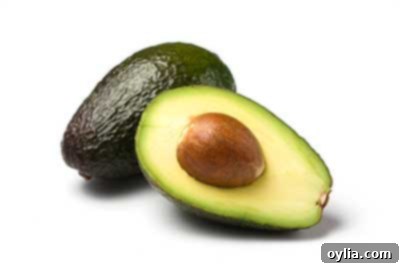
It might surprise many to see avocado at the very top of a list of healthy fruits, given its common use in savory dishes. However, botanically speaking, avocados are indeed fruits! These creamy, green wonders are celebrated for being an extraordinary source of heart-healthy monounsaturated fats, which are crucial for reducing bad cholesterol and supporting cardiovascular health. Their high fat content, combined with an incredibly low net carb count, makes them a fundamental staple in most ketogenic diets, providing sustained energy and remarkable satiety. Beyond healthy fats, avocados are nutritional powerhouses, containing more than 20 different vitamins and minerals, including significant amounts of potassium (often more than a banana!), Vitamin K, Vitamin C, Vitamin B6, and folate. Their substantial dietary fiber content also plays a vital role in digestion and contributes to their minimal impact on blood sugar. Whether mashed into guacamole, sliced into salads, or blended into smoothies, avocados are an exceptionally versatile and nutrient-dense choice.
Explore all of our delicious recipes using avocado.
Serving size: 1 cup (sliced)
Sugar: 1 gram
Total Carbs: 12 grams
Dietary Fiber: 10 gramsNet Carbs: 2 grams
Blackberries
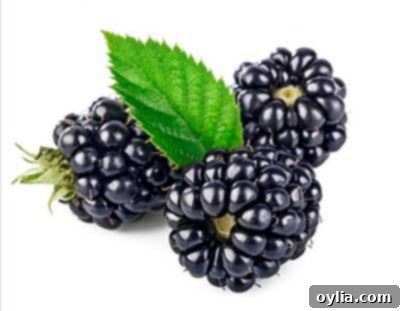
Blackberries are not just absolutely delicious, with their perfect balance of sweetness and tartness (especially delightful in refreshing beverages like this Blackberry Mojito), but they are also packed with an incredible array of essential vitamins, minerals, and a substantial amount of dietary fiber. These sweet-tart berries are a popular staple of summer and offer a wide variety of profound health benefits. They are particularly rich in anthocyanins, powerful antioxidants that contribute to their deep, dark color and are known to boost brain health, potentially improving memory and cognitive function. Furthermore, blackberries provide excellent immune support thanks to their high Vitamin C content, and their rich fiber profile promotes increased digestive health by fostering a healthy gut microbiome. They are also a good source of Vitamin K and manganese. Incorporating blackberries into your diet is a flavorful way to enhance overall wellness while keeping net carb counts low.
See all of our delectable recipes using blackberries.
Serving size: 1 cup
Sugar: 7 grams
Total Carbs: 14 grams
Dietary Fiber: 8 gramsNet Carbs: 6 grams
Raspberries
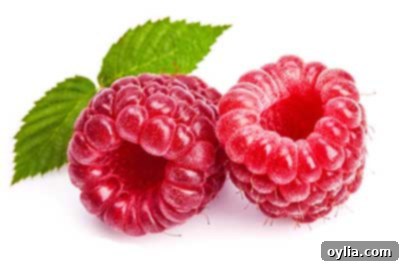
As one of the healthiest and most versatile fruits you can eat, raspberries are a nutritional superstar. These vibrant red berries are notably low in sugar and extraordinarily packed with dietary fiber, which aids in satiety, helps regulate blood sugar, and supports a healthy digestive system. Beyond fiber, raspberries are a rich source of powerful antioxidants, various phytonutrients, and essential vitamins. If you’re looking to significantly boost your Vitamin C intake, raspberries are an exceptional choice, containing over 32 milligrams per cup, providing a substantial portion of your daily recommended value. They also offer valuable amounts of manganese and Vitamin K. Compounds like ellagic acid found in raspberries have been studied for their potential anti-cancer properties and their ability to reduce inflammation. Their delicate texture and unique sweet-tart flavor make them a fantastic addition to yogurts, smoothies, desserts, or simply enjoyed as a refreshing snack, contributing significantly to your overall health and well-being.
See all of our delightful recipes using raspberries.
Serving size: 1 cup
Sugar: 5 grams
Total Carbs: 15 grams
Dietary Fiber: 8 gramsNet Carbs: 7 grams
Strawberries
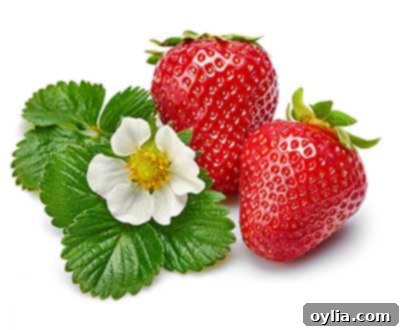
Strawberries are undeniably one of the world’s most cherished and popular low-carb fruits, widely enjoyed fresh, frozen, and incorporated into countless dishes, from homemade jams to delectable baked goods. Interestingly, despite their common name, botanists classify strawberries as “aggregate fruits” rather than true berries. These delicious fruits are overflowing with beneficial nutrients, including an exceptionally high concentration of Vitamin C, often exceeding the daily recommended intake in a single serving. They are also excellent sources of folate, manganese, and a diverse range of powerful antioxidants, such as anthocyanins (which give them their beautiful red color) and ellagic acid. Thanks to their low glycemic index, strawberries do not significantly impact blood sugar levels, making them a wise choice for those managing glucose. Regular consumption of strawberries has been linked to improved heart health, reduced oxidative stress, and anti-inflammatory benefits, solidifying their status as a truly nutritious and beneficial fruit.
See all of our delightful recipes using strawberries.
Serving size: 1 cup
Sugar: 7 grams
Total Carbs: 11 grams
Dietary Fiber: 3 gramsNet Carbs: 8 grams
Watermelon
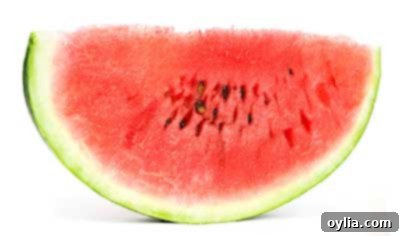
Arguably the most iconic and popular fruit of the summertime, watermelon is celebrated for its incredibly refreshing qualities and vibrant sweetness. What truly sets it apart as a healthy choice is its remarkably high water content, typically over 90%, making it an excellent fruit for hydration during hot weather. Despite its sweet flavor, watermelon is relatively low in sugar per serving compared to many other fruits. It’s also an abundant source of essential vitamins, including Vitamin A and C, important minerals like potassium, and powerful antioxidants, most notably lycopene. Lycopene is a potent carotenoid responsible for watermelon’s characteristic red hue and is associated with various health benefits, including enhanced heart health, skin protection against UV damage, and a reduced risk of certain cancers. Additionally, watermelon contains citrulline, an amino acid that can promote better blood flow and exercise performance. For a delicious, hydrating, and healthy summer dessert or snack, be sure to try this innovative Watermelon Pizza. Its combination of hydration, nutrients, and antioxidants makes watermelon a wonderfully nutritious and guilt-free choice.
See all of our delightful recipes using watermelon.
Serving size: 1 cup (diced)
Sugar: 9 grams
Total Carbs: 11.5 grams
Dietary Fiber: 0.5 gramsNet Carbs: 11 grams
Apples
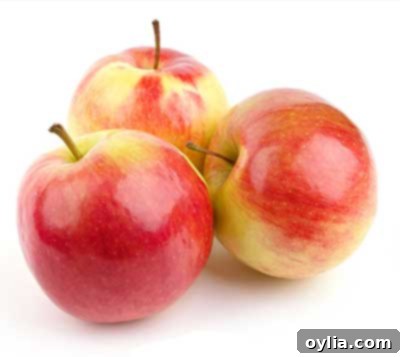
The timeless adage “an apple a day keeps the doctor away” carries significant weight, as apples are consistently ranked among the best fruits for overall health and effective weight management. Their relatively low-calorie count, combined with an impressive amount of dietary fiber, makes them incredibly satiating, helping to control appetite and support healthy weight loss efforts. Apples are rich in both soluble fiber (like pectin, which helps lower cholesterol and stabilize blood sugar) and insoluble fiber (which promotes digestive regularity). Regular consumption of apples provides a wide range of health benefits, including enhanced digestion, improved heart health due to their flavonoid content, and a lowered risk of various chronic diseases, such as type 2 diabetes and certain cancers. A significant portion of an apple’s beneficial fiber and powerful antioxidants, including quercetin, is concentrated in its skin, so it’s highly recommended to eat apples unpeeled to maximize their nutritional value. Whether enjoyed as a crisp, portable snack, thinly sliced into salads, or baked into healthy treats, apples are a versatile and exceptionally nutrient-dense choice.
See all of our delightful recipes using apples.
Serving size: 1 cup (sliced)
Sugar: 11 grams
Total Carbs: 15 grams
Dietary Fiber: 4 gramsNet Carbs: 11 grams
Plums
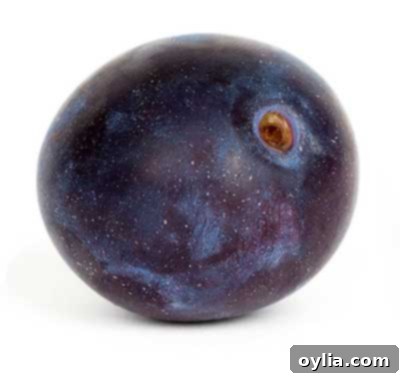
Plums, enchanting stone fruits with a rich history, were first cultivated in China thousands of years ago and have since spread worldwide, boasting over 2,000 known varieties today. These versatile fruits are cherished for their subtle sweetness and impressive nutritional density, making them a perfect addition to everything from refreshing smoothie bowls to healthy desserts. Plums are particularly well-known for their exceptionally high levels of antioxidants, including potent anthocyanins and phenolic compounds, which are vital for protecting the body’s cells from oxidative damage caused by free radicals. This robust antioxidant profile contributes to their recognized anti-inflammatory and potential cancer-fighting abilities. Furthermore, plums are a good source of dietary fiber, Vitamin C, Vitamin K, and potassium, all of which support digestive health, promote bone health, and contribute to overall immune function. Whether enjoyed fresh, dried as prunes (famous for their digestive benefits), or incorporated into culinary creations, plums offer a wealth of health advantages in a delicious and adaptable package.
See all of our delightful recipes using plums.
Serving size: 1 cup (sliced)
Sugar: 16 grams
Total Carbs: 19 grams
Dietary Fiber: 3 gramsNet Carbs: 16 grams
Oranges

Oranges are practically synonymous with Vitamin C, and for excellent reason—a single medium orange can provide well over 90% of the recommended Daily Value of this powerful antioxidant vitamin, crucial for immune function and collagen production. However, their health benefits extend far beyond just Vitamin C. These widely popular citrus fruits are densely packed with a high volume of essential nutrients and various antioxidants, including beneficial flavonoids and carotenoids, making them one of the healthiest fruits to integrate into your diet. Regular consumption of oranges is associated with numerous positive health outcomes, such as decreased blood pressure, reduced systemic inflammation, and a beneficial impact on cholesterol levels. Their fiber content also contributes to digestive health, and the natural sugars are accompanied by this fiber, which helps to mitigate rapid blood sugar spikes. Oranges are incredibly versatile, enjoyed fresh, juiced, or as a vibrant, tangy addition to both sweet and savory dishes, offering a refreshing burst of flavor and a significant nutritional boost to your daily diet.
See all of our vibrant recipes using oranges.
Serving size: 1 cup (sections)
Sugar: 17 grams
Total Carbs: 21 grams
Dietary Fiber: 4 gramsNet Carbs: 17 grams
Blueberries
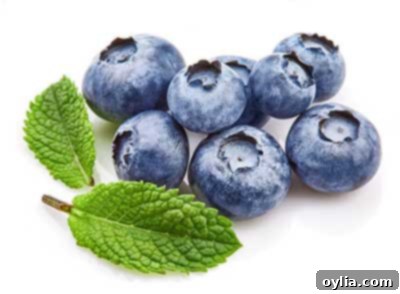
Blueberries are globally celebrated as one of the most popular and incredibly nutrient-dense fruits, finding their way into everything from wholesome breakfast muffins to refreshing cocktails. While they contain slightly more natural sugar than some other berry varieties, blueberries are exceptionally rich in phytonutrients, particularly anthocyanins. These potent compounds are responsible for their distinctive deep blue hue and are believed to play a crucial role in moderating how sugar is absorbed into the bloodstream, helping to prevent sharp spikes. Beyond their potential in sugar regulation, blueberries are powerhouse sources of a vast array of antioxidants and essential vitamins, including Vitamin C and K, as well as manganese. This rich nutritional profile translates into an abundance of health benefits, such as contributing to lower cholesterol levels, protecting the body from oxidative stress and cellular damage, and supporting cognitive function and memory. Their versatility allows them to be enjoyed fresh, frozen, in smoothies, or baked goods, making it easy to incorporate these “brain berries” into your daily diet for a myriad of health advantages.
See all of our delicious recipes using blueberries.
Serving size: 1 cup
Sugar: 15 grams
Total Carbs: 21 grams
Dietary Fiber: 3 gramsNet Carbs: 18 grams
Kiwi
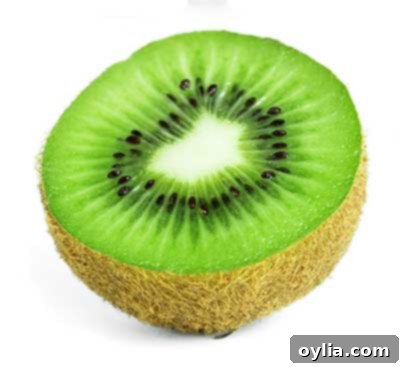
Did you know that the small, fuzzy kiwi fruit is also famously known as the Chinese gooseberry? This tropical gem boasts a rich heritage, having been utilized in traditional Chinese medicine for centuries as a powerful tool to support digestion and promote comprehensive gut health. These vibrant fruits are incredible sources of a diverse array of vitamins, including exceptionally high levels of Vitamin C (often surpassing oranges!), Vitamin K, and Vitamin E. They also pack a significant amount of dietary fiber (both soluble and insoluble) and beneficial polyphenols. Some of the top health benefits of incorporating kiwi into your diet include a powerful boost to your immune system, a reduction in blood pressure, and unparalleled digestive support, largely thanks to its unique enzyme, actinidin, which aids in breaking down proteins and improving gut motility. I personally love integrating this distinctively tart and refreshing fruit into vibrant summer treats like these delightful Fruit Popsicles. With its dense nutritional profile and unique enzymatic properties, kiwi stands out as a highly beneficial choice for enhancing your daily wellness routine and maintaining a healthy digestive system.
Discover all of our refreshing recipes using kiwi.
Serving size: 1 cup (sliced)
Sugar: 16 grams
Total Carbs: 26 grams
Dietary Fiber: 5 gramsNet Carbs: 21 grams
High Sugar Fruits: Enjoying Moderation for Optimal Health
While the focus on low-carb and low-sugar options is crucial for certain dietary goals, it’s equally important to acknowledge that virtually all fruits are exceptional sources of essential vitamins, minerals, and disease-fighting antioxidants. The natural sugars found in fruits are fundamentally different from added sugars in processed foods; they come packaged with dietary fiber, which helps to slow down sugar absorption, prevents rapid blood sugar spikes, and provides a host of other beneficial nutrients that processed sugars lack. However, some fruits inherently contain a significantly higher concentration of natural sugars than others. For individuals closely monitoring their sugar intake, managing specific health conditions like diabetes, or adhering to very strict low-carb diets, it becomes important to be aware of these higher-sugar fruits and consume them in more controlled quantities. The key is always moderation and balance, rather than outright elimination, to ensure you still benefit from their unique and valuable nutritional offerings.
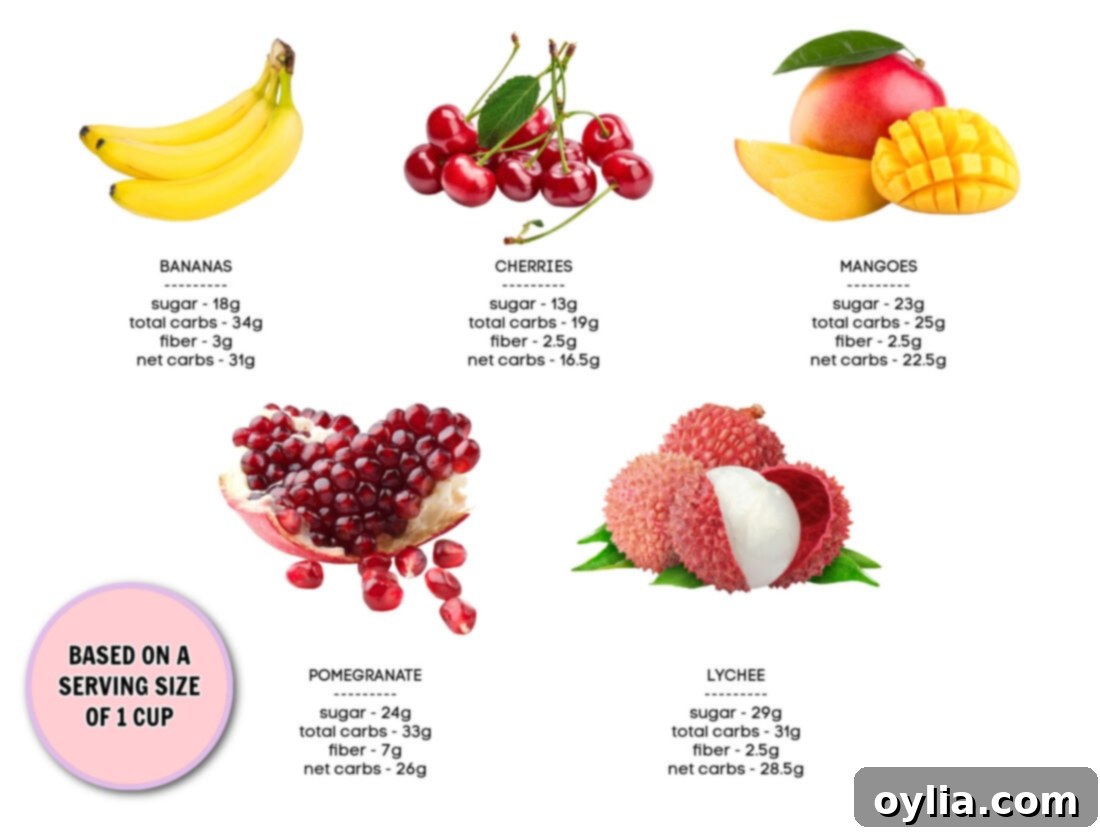
These are some of the fruits with the highest natural sugar content (based on typical 1-cup servings):
- Bananas – Famous for their potassium, bananas also contain a significant amount of natural sugar, with approximately 18 grams of sugar, 3 grams of fiber, and 34 grams of total carbs per cup. This results in a notable 31 net carbs. While an excellent source of quick energy, moderation is key.
- Cherries – These delightful and juicy stone fruits pack approximately 13 grams of sugar, 2.5 grams of fiber, and 19 grams of total carbs per cup. This leads to 16.5 net carbs. Enjoy them in smaller, controlled portions, especially during their peak season.
- Mangos – A vibrant tropical favorite, mangos are lusciously sweet, containing around 23 grams of sugar, 2.5 grams of fiber, and 25 grams of total carbs per cup. This yields approximately 22.5 net carbs. Their rich, exotic flavor is certainly worth savoring moderately.
- Pomegranate – The jewel-like seeds of a pomegranate are not only visually appealing but also quite dense in carbohydrates. A cup offers around 24 grams of sugar, a healthy 7 grams of fiber, and 33 grams of total carbs. This results in 26 net carbs, making them a higher-carb fruit.
- Lychee – These fragrant, exotic fruits are among the highest in natural sugar content. A single cup provides approximately 29 grams of sugar, 2.5 grams of fiber, and 31 grams of total carbs, giving them a hefty 28.5 net carbs. They are a delicious treat but best enjoyed sparingly.
So, now that we’ve thoroughly covered a diverse range of the world’s healthiest fruits, delving into their sugar and net carb contents, it’s clear that knowledge is paramount when making dietary choices. Particularly when embarking on or maintaining a low-carb diet, understanding these nutritional figures allows for incredibly informed decisions without ever having to sacrifice the abundant health benefits fruits provide. Does this mean you need to completely cut out your favorite higher-carb fruits like a sweet banana or tart cherries? Absolutely not. A balanced and mindful approach is always the most sustainable and enjoyable path.
Embracing a low-carb lifestyle doesn’t equate to giving up the delicious, nutrient-rich fruits you love entirely. Instead, it encourages thoughtful moderation and strategic consumption. For instance, rather than piling a whole sliced banana onto your morning yogurt bowl, consider enjoying half a banana along with a generous handful of raspberries, which offer more fiber and fewer net carbs, thereby providing comparable volume and satisfaction. Small, conscious adjustments like these can make a significant difference in managing your carb intake while still enjoying the vibrant flavors and profound health benefits that fruits universally offer. Low-carb diets can be incredibly effective ways to improve metabolic health, support weight management, and stabilize blood sugar, and they certainly don’t have to mean sacrificing flavor, variety, or enjoyment in your culinary journey. The ultimate goal is to cultivate sustainable eating habits that truly nourish your body and continually delight your palate.
Eager to expand your knowledge of healthy produce even further? Be sure to visit our comprehensive Guide to the Best and Worst Low Carb Vegetables for more essential information and practical tips to further enhance your healthy eating journey and round out your diet with nutritious plant-based options!
Sources:
List of the Best Low-Carb Fruits and Vegetables by Healthline
20 Healthy Fruits That Are Super Nutritious by Healthline
The 25 Healthiest Fruits You Can Eat, According to a Nutritionist by Jaclyn London
This post originally appeared on this blog on July 9, 2021.
